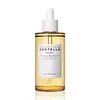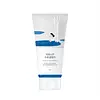What's inside
What's inside
 Key Ingredients
Key Ingredients

No key ingredients
 Benefits
Benefits

 Concerns
Concerns

No concerns
 Ingredients Side-by-side
Ingredients Side-by-side

Water
Skin ConditioningGlycerin
HumectantSodium Cocoyl Alaninate
Lauryl Hydroxysultaine
CleansingDisodium Cocoamphodiacetate
CleansingSodium Methyl Cocoyl Taurate
CleansingAcrylates/C10-30 Alkyl Acrylate Crosspolymer
Emulsion StabilisingButylene Glycol
Humectant1,2-Hexanediol
Skin ConditioningSodium Chloride
MaskingCaprylyl Glycol
EmollientCoco-Glucoside
CleansingArtemisia Annua Extract
MaskingCitric Acid
BufferingSodium Cocoyl Isethionate
CleansingBetula Platyphylla Japonica Juice
Skin ConditioningAnthemis Nobilis Flower Oil
MaskingDisodium EDTA
Pinus Sylvestris Leaf Oil
MaskingHexylene Glycol
EmulsifyingQuillaja Saponaria Bark Extract
CleansingGlyceryl Caprylate
EmollientGlyceryl Glucoside
HumectantSodium Hyaluronate
HumectantHyaluronic Acid
HumectantAscorbic Acid
AntioxidantWater, Glycerin, Sodium Cocoyl Alaninate, Lauryl Hydroxysultaine, Disodium Cocoamphodiacetate, Sodium Methyl Cocoyl Taurate, Acrylates/C10-30 Alkyl Acrylate Crosspolymer, Butylene Glycol, 1,2-Hexanediol, Sodium Chloride, Caprylyl Glycol, Coco-Glucoside, Artemisia Annua Extract, Citric Acid, Sodium Cocoyl Isethionate, Betula Platyphylla Japonica Juice, Anthemis Nobilis Flower Oil, Disodium EDTA, Pinus Sylvestris Leaf Oil, Hexylene Glycol, Quillaja Saponaria Bark Extract, Glyceryl Caprylate, Glyceryl Glucoside, Sodium Hyaluronate, Hyaluronic Acid, Ascorbic Acid
 Reviews
Reviews

Ingredients Explained
These ingredients are found in both products.
Ingredients higher up in an ingredient list are typically present in a larger amount.
1,2-Hexanediol is a synthetic liquid and another multi-functional powerhouse.
It is a:
- Humectant, drawing moisture into the skin
- Emollient, helping to soften skin
- Solvent, dispersing and stabilizing formulas
- Preservative booster, enhancing the antimicrobial activity of other preservatives
Butylene Glycol (or BG) is used within cosmetic products for a few different reasons:
Overall, Butylene Glycol is a safe and well-rounded ingredient that works well with other ingredients.
Though this ingredient works well with most skin types, some people with sensitive skin may experience a reaction such as allergic rashes, closed comedones, or itchiness.
Learn more about Butylene GlycolGlycerin is already naturally found in your skin. It helps moisturize and protect your skin.
A study from 2016 found glycerin to be more effective as a humectant than AHAs and hyaluronic acid.
As a humectant, it helps the skin stay hydrated by pulling moisture to your skin. The low molecular weight of glycerin allows it to pull moisture into the deeper layers of your skin.
Hydrated skin improves your skin barrier; Your skin barrier helps protect against irritants and bacteria.
Glycerin has also been found to have antimicrobial and antiviral properties. Due to these properties, glycerin is often used in wound and burn treatments.
In cosmetics, glycerin is usually derived from plants such as soybean or palm. However, it can also be sourced from animals, such as tallow or animal fat.
This ingredient is organic, colorless, odorless, and non-toxic.
Glycerin is the name for this ingredient in American English. British English uses Glycerol/Glycerine.
Learn more about GlycerinWater. It's the most common cosmetic ingredient of all. You'll usually see it at the top of ingredient lists, meaning that it makes up the largest part of the product.
So why is it so popular? Water most often acts as a solvent - this means that it helps dissolve other ingredients into the formulation.
You'll also recognize water as that liquid we all need to stay alive. If you see this, drink a glass of water. Stay hydrated!
Learn more about Water